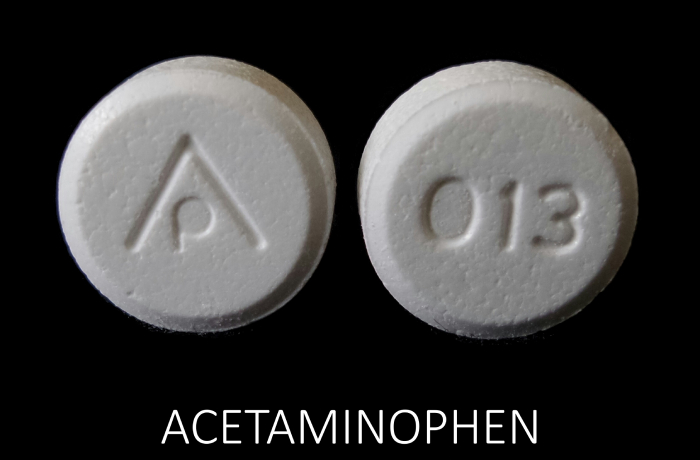Colchicine Offers No Benefit for Knee Osteoarthritis
A study presented at the American College of Rheumatology’s annual meeting (November 14–19, Washington, D.C.) revealed that colchicine does not improve pain, function, or synovial effusion size in individuals with knee osteoarthritis (OA). Led by Jonathan Samuels, M.D., from NYU Langone in Rye Brook, New York, the research evaluated whether daily supplementation of this alkaloid could have a positive impact on knee OA symptoms, including pain and joint function, as well as the size of synovial effusions (the fluid buildup around the knee joint).
The study enrolled 120 patients with painful knee OA, classified with radiographic Kellgren-Lawrence (KL) grades 2 or 3, and randomized them to either daily colchicine or placebo for a 12-week period. The results showed no significant difference between the alkaloid and placebo groups in terms of changes in visual analog scale (VAS) pain scores, Knee Osteoarthritis Outcome Score (KOOS) subscores, or the sonographic measurement of synovial effusions.
Even when analyzing the data from those who completed the study, no meaningful improvements were found. Further analysis revealed that this alkaloid did not benefit patients with higher baseline inflammation, more intense pain levels, or more severe radiographic OA grades. Notably, patients in the colchicine group did not report using less acetaminophen compared to those on the placebo, which may indicate that the supplement offered no additional pain relief.
The authors concluded that longer treatment durations, higher doses of this alkaloid, or a larger patient cohort may be necessary to fully determine whether colchicine can affect OA pain, function, or radiographic progression. However, the current data suggests that colchicine is not effective in improving knee OA symptoms for most patients.
Commentary by YourDailyFit columnist Alice WintersÂ

Colchicine, historically used for gout management and inflammatory conditions like pericarditis, has recently been tested as a potential treatment for knee osteoarthritis (OA). The study outlined here raises critical concerns about its efficacy for this particular application. Knee OA, characterized by cartilage degradation and joint inflammation, is one of the most common forms of arthritis, often leading to pain, stiffness, and impaired mobility. Given the limited therapeutic options available for those suffering from knee OA, any new potential treatment is met with keen interest. However, the findings from this study strongly suggest that colchicine may not be the breakthrough many hoped for.
Lack of Efficacy: The Core Finding
The most significant takeaway from this trial is the lack of any meaningful improvement in pain relief, functional ability, or reduction in synovial effusion size. The study’s primary endpoints—visual analog scale (VAS) pain scores and Knee Osteoarthritis Outcome Score (KOOS) subscores—failed to show a statistically significant difference between the colchicine and placebo groups. The same conclusion held true in the per-protocol analysis, which typically focuses on the results of patients who completed the study as per the protocol, further cementing the negative findings.
Synovial effusion size is an important marker in OA progression, and the failure of colchicine to show any impact on this metric suggests that it does not possess the anti-inflammatory or disease-modifying capabilities one might have expected based on its effects in other inflammatory conditions.
No Benefit in High-Risk Subgroups
Another notable aspect of the study is that no subgroups of patients—whether defined by higher baseline inflammation, more severe pain, or worse radiographic evidence of OA—showed improvement with colchicine. This is particularly telling because knee OA is a highly heterogeneous disease, and targeted interventions can often yield differential benefits across patient subsets. The lack of any subgroup that benefited from colchicine indicates that the drug likely does not offer any meaningful therapeutic advantages, even for patients in more severe stages of OA.
Questioning the Dosing and Duration
The researchers themselves acknowledged that it is possible that longer treatment periods, higher doses of colchicine, or larger study populations might yield different results. While this remains a theoretical possibility, the current data casts doubt on colchicine’s utility as an effective intervention for knee OA. Colchicine’s mechanism of action, which involves inhibiting microtubule formation to reduce inflammation, may simply not be well-suited to the pathophysiology of knee OA, which involves complex interactions between cartilage, bone, and synovial tissue.
Acetaminophen Use: No Advantage

An interesting side note from this study is that patients receiving colchicine did not reduce their use of acetaminophen compared to those receiving a placebo. This could be a key indicator that colchicine is not providing the additional pain relief one might expect from a medication meant to directly modify inflammatory processes. Given that acetaminophen remains one of the most commonly used analgesics for OA patients, its continued use in the colchicine group is a strong signal that the latter offered no added benefit in pain management.
Market Considerations and Future Research
For consumers and healthcare providers, this study reinforces the importance of being cautious about the adoption of new treatments without clear, evidence-based efficacy. Knee OA treatments are highly variable in their effects, and colchicine—despite its promising anti-inflammatory properties—does not appear to be a viable treatment option for most patients suffering from this condition.
The research community should not abandon colchicine entirely, however. There is still some possibility that different dosages, longer treatment periods, or combinations with other therapies might yield different outcomes. But as of now, the evidence points to colchicine being unlikely to play a significant role in knee OA management.
For those considering colchicine as part of their treatment plan for knee OA, it would be wise to consult with healthcare providers to discuss the lack of clinical support for its use, alongside other more established therapies like physical therapy, NSAIDs, or corticosteroid injections.
Conclusion
In conclusion, while colchicine holds promise in treating various inflammatory conditions, it falls short when applied to knee osteoarthritis, based on the findings from this study. Given the lack of effect on pain, function, or disease progression, it seems that colchicine is not an effective therapeutic agent for knee OA at this time.



